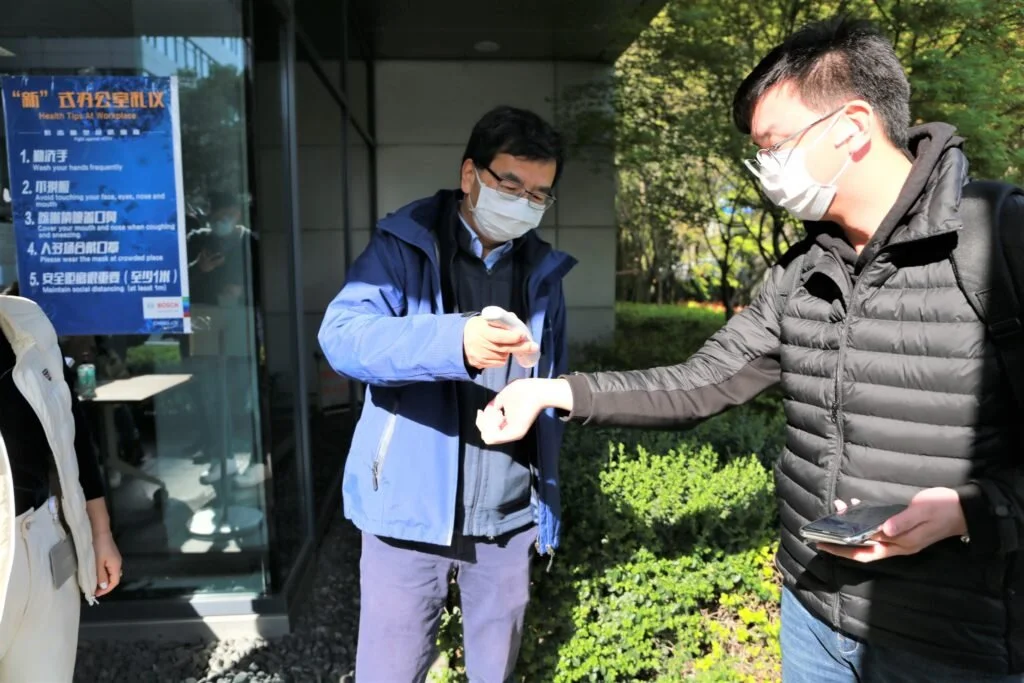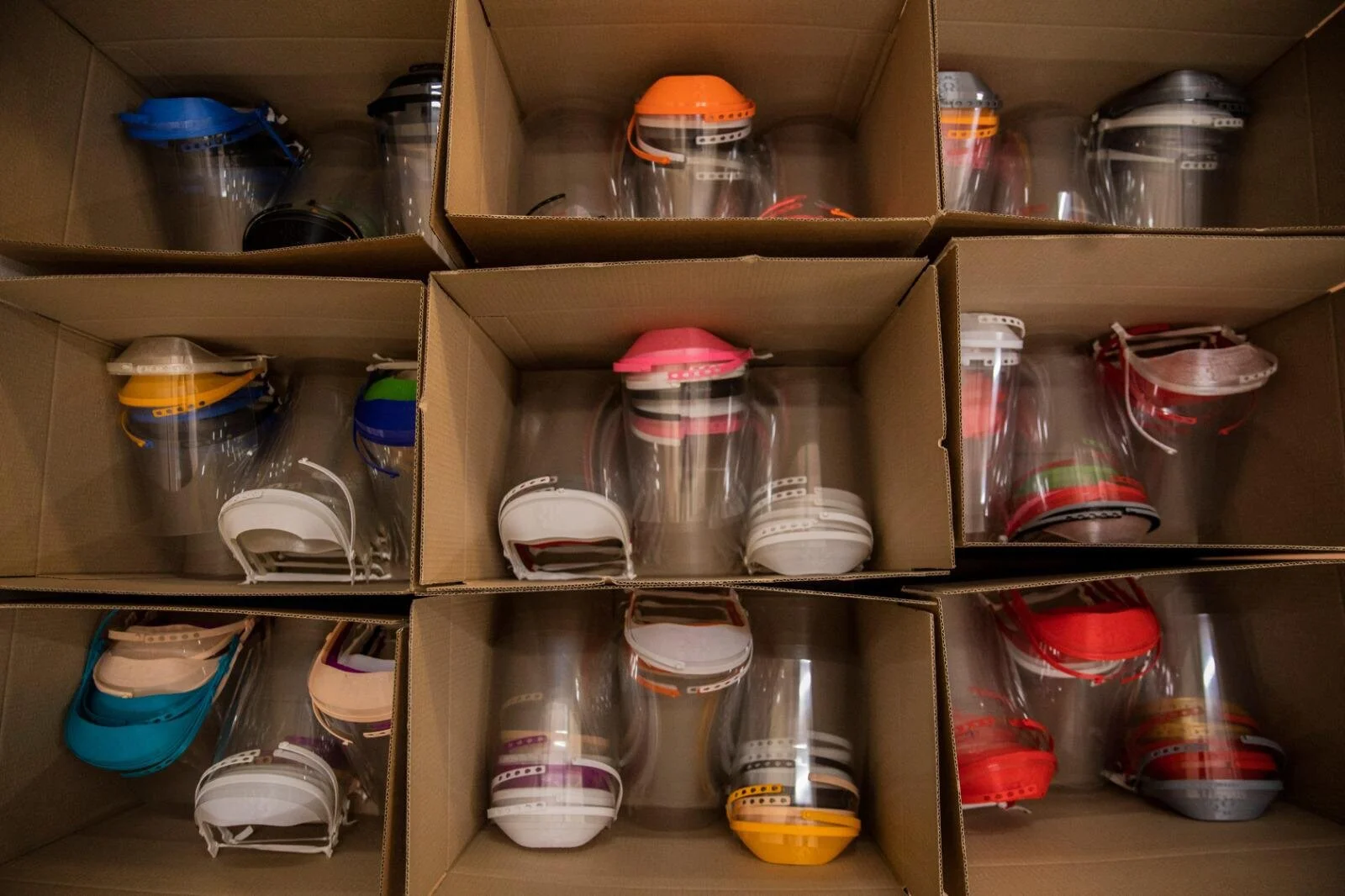Chinese communities built a donation pipeline for Covid-19 supplies to US hospitals
Chinese communities built a donation pipeline for Covid-19 supplies to US hospitals By Frankie Huang Quartz April 4, 2020
Before most Americans even acknowledged Covid-19 as anything more than another far-away “China problem,” members of Chinese communities around the country recognized how vulnerable the US was to the ravages of the virus.
Starting in late January, around the time when the Chinese city of Wuhan was put under lockdown, Chinese communities across the US had sprung into action, organizing donations of masks and protective gear to relieve the massive shortages in Chinese hospitals.
“In January, someone told me not to donate to Wuhan, and keep those supplies for the US,” Zhao Yun, a volunteer from New Jersey, recalled. Many were cautiously optimistic that if the situation in China stabilized, the disease would not affect the rest of the world, but they still took precautions.
Fu Yuhong, who volunteers at the Florence Fang Family Foundation in San Mateo County, California, said, “We bought up all the masks we could find in February, and if the US didn’t have an outbreak afterwards, it would have been a happy ending.”
Still in February, US volunteers with families or community ties to China spent the month calling in favors among their extended networks and tapping personal connections to procure supplies and secure the fastest channels of transport into China. At the time, there was little demand for masks or other personal protective equipment in American medical institutions, or from the public.
But by the time March rolled around, China’s need for supplemental supplies tapered off, while cities in the US became tragically reminiscent of Wuhan in its early days.
In response, those same Chinese donation operations that had rallied for Chinese health providers quickly reversed their course to focus on donating supplies from China to US recipients, where hospitals are still so understocked that medical staff have resorted to reusing masks far beyond the requisite contamination window, and wearing trash bags for protection.
Viral spread of racism
With the rise in infection rates in the US, something else saw a sharp uptick: anti-Chinese sentiment, fanned by the racist discourse of the invasive “Chinese virus” propagated by president Donald Trump and prominent conservative personalities.
Online, self-styled pundits still accuse the Chinese government of hoarding and profiting off of supplies and effectively holding the US hostage. Christine Lu, an impact investor who focuses on procuring personal protective equipment for frontline healthcare workers, said that many buyers, including local and state governments and hospitals, have asked her to source N95 masks and other supplies from factories that are not in China.
Chinese donation organizers for US supplies are painfully aware of how the attention their efforts attract could impact Chinese diaspora communities, and the East Asian community at large. Should they promote their donation efforts to demonstrate their patriotism, as former Democratic presidential candidate Andrew Yang recommends? If they do, will all their efforts be met with appreciation, or suspicion?
Wang Lei, who leads an association of 63 Chinese university alumni associations, emphasized the importance of promoting a positive image for these Chinese donation efforts. “As members of American society, we must contribute and let our influence be known. This means working directly with local [US state] governments, because after all, they want our vote. This also means we must not involve the Chinese consulates in any way. We can’t give anyone excuses to politicize our work and consider us to be Chinese propaganda.”
No good deed
Not everyone involved in the donations agrees with Wang. In fact, a number of other organizers I spoke to are wary of drawing too much attention, even if it’s positive. Some told me that they try to keep their efforts low-key because charity ought to be done out of kindness rather than prestige. Some insisted that it is their adherence to Confucian culture that makes them humble. Others explained that they didn’t want anyone to feel indebted to them.
“Chinese people are working so hard to help right now because we understand the stakes from watching China.”
More than anything, these explanations portray a lingering fear of being accused of having a personal agenda, even one as reasonable as wanting to generate public goodwill, for the sake of protecting themselves and the public.
An organizer from the TianMu Education Foundation in Palo Alto, California, a free learning center for parents, who asked not to be named told me, “There are a lot of people who do this with different intentions. I’m afraid of negative news about people who sell donated masks for profit, or commit fraud. We try to be very transparent with our work for this reason, to inspire trust.”
Behind the scenes, a huge amount of work is put into ensuring that funds are handled transparently and ethically, that the supplies sent to various hospitals and essential institutions are high-quality, have traceable sources, and go where they are needed, the organizer said.
Alan Lin, a Bay Area social entrepreneur, has put his professional expertise to work to ensure that the numerous Chinese organizations working together optimize their output.
“The biggest challenge for us is to overcome the lack of coordination amongst organizations. There are a lot of people who want to help, but don’t have a clear mission. I have trained a team specifically to mitigate this, and each member is embedded with a different group to facilitate larger-scale cooperation.”
Lin said he recruited volunteers with different expertise such as medicine, equipment manufacturing, and shipping logistics, and places them in due diligence groups to validate each piece of new information. Thanks to their work, they have identified grifters, fake and expired supplies, as well as a large volume of fake news on anything from false rumors of new government policies like martial law to customs import protocols for masks and personal protection equipment supplies.
Mark Zhang, founder and COO of gaming company IGG, plans to organize a seminar to share his accumulated experience on donation logistics, including customs clearing, quality verification for masks, and hospital relationship management.
Beyond the enormous, and growing, quantity of donations that are being made, what is even more impressive is the complex and far-reaching infrastructure that has been built to carry it.
“Coordination and due diligence is key,” said Lin. “It is of utmost importance that our work is up to the highest standards, because lives depend on it.”
For all the importance of this unglamorous work in facilitating this massive collective effort, few people understand why so many Chinese people are working so hard while asking for nothing in return. From her many years of involvement in charity work, Fu is used to suspicion and apathy. It doesn’t discourage her in the least.
“We come from China and we are connected to it, but we live in the US, and this is our home, our community,” she said. “Chinese people are working so hard to help right now because we understand the stakes from watching China, so we feel an extra sense of urgency.”
Fu continues, “Even though some Americans display anti-Chinese sentiments, … I do everything I can to help my community, and I earn the respect of those who see clearly.”






